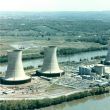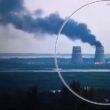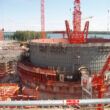New safety-focused rules, rather than strict compliance would make for a safer nuclear industry
By Andrew C. Kadak, April 25, 2008
It’s true that the Nuclear Regulatory Commission (NRC) has had lapses in enforcement of its rules by giving the benefit of the doubt to utilities. David Lochbaum provides reasonable examples of such lapses. Conversely, there have been commissions that have had such a focus on compliance that utilities were forced to follow rules that had minimal to no impact on safety, setting the entire focus on safety back 10 years, as the Millstone Unit 1 design basis reconstruction effort has shown.
As a former utility executive, the NRC lapse at Davis-Besse is very difficult to understand given the evidence that was available years before. The reactor vessel head degradation at the plant was the result of a major breakdown not only at the NRC, but also at the Institute of Nuclear Operations (the industry’s oversight organization), the utility’s external oversight board and most importantly the utility itself. It should be recognized that the responsibility for nuclear safety rests not with the NRC, but with the utility that owns and operates the plant. The best the NRC can do is monitor operator performance and create an environment in which a positive safety culture is encouraged by its actions within its rules and regulations. The major lesson of the Three Mile Island accident, which is still relevant today, is that the primary responsibility for safety is with the operator.
David’s proposals for reforming the NRC have some merits. The NRC is living inside a box of its existing regulations that does not incentivize industry to improve design or procedures since it must operate within a regulatory envelope developed largely in response to past events, rather than a forward looking focus on meaningful safety improvements. The commission has slowly allowed risk to inform the regulatory process, but this has met resistance from “old time” thinking within the NRC itself and from industry.
Once a significant problem at a plant such as Davis-Besse is identified, the NRC swoops in with many special investigation teams that result in significant changes at the utility, not only in terms of personnel but also in operation. These are extremely costly as documented by David and one would think that the utilities would recognize the consequences of poor performance by now.
David calls for seeking the “best available” candidates for senior NRC management openings from other federal agencies such as the Department of Energy, the Environmental Protection Agency and the General Accounting Office and creating a rotation program to bring in new perspectives. I would expand his list to include those with operating reactor experience and officials from the Federal Aviation Administration and the National Transportation Safety Board. He also encourages Congress to play a more active oversight role in monitoring NRC reforms.
While in principle, these are good ideas since external input is always healthy, the regulatory process is a strict one in which innovation in enforcement is not necessarily a good option using David’s own examples. A serious review of the entire regulatory framework should be considered, to make it more focused on safety than on process. Unless this happens, those bright people from outside will be just as constrained as the current group who are promoted from within.
Deterministic rules, developed to respond to uncertainties and conservatisms even if they make no real sense, are a deterrent to safety no matter who enforces them with vigor. The industry has experienced such blind enforcement of regulations, which has resulted in billions of dollars wasted without meaningful improvement in safety.
When you couple a regulatory structure focused on safety based on risk-informed criteria, with an NRC staff that is open minded and managers who are willing to allow that staff to focus on real safety issues, meaningful improvement in overall regulatory and utility performance and most importantly safety is possible.
Topics: Nuclear Energy
Share: [addthis tool="addthis_inline_share_toolbox"]














